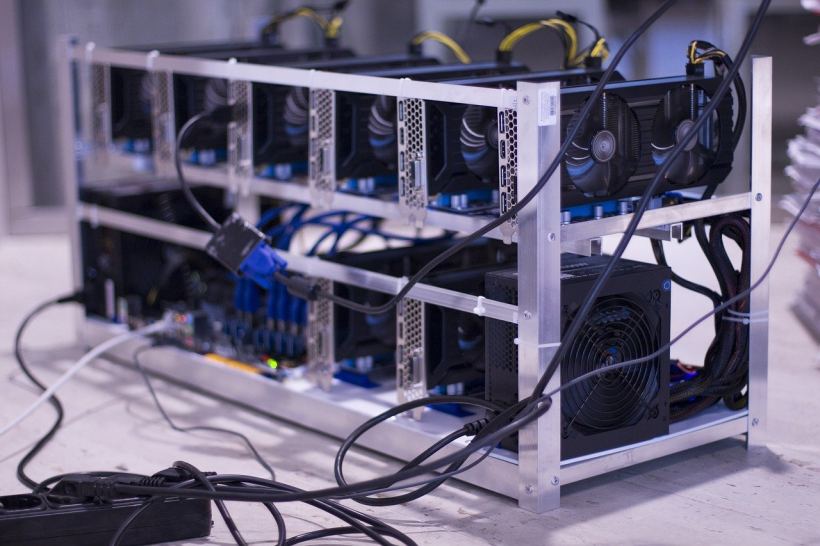What Is Bitcoin Mining And Is It Still Profitable
Imagine a digital gold rush, where tech-savvy individuals and organizations are racing to solve complex mathematical puzzles in pursuit of a coveted prize. Welcome to the world of Bitcoin mining, a realm that’s equal parts fascinating and mysterious. But before we dive into the nitty-gritty, let’s clarify the basics: what exactly is Bitcoin mining, and is it still a profitable venture?

- Embracing The Future Of Crypto Staking: Unlocking The Power Of Passive Income
- Unlocking The Secrets Of Crypto Faucets: A Beginner’s Guide To Earning Free Coins
- How To Spot The Next Bitcoin Tips For Finding Promising Altcoins
- The Cryptocurrency Conundrum: How Digital Currencies Are Redefining The Global Financial Landscape
- The Rise Of Crypto Wallets: Protecting Your Digital Fortune
To understand Bitcoin mining, you first need to know a bit about how the Bitcoin network operates. Essentially, Bitcoin is a decentralized digital currency that’s stored on a public ledger called the blockchain. When someone wants to send or receive Bitcoins, that transaction is broadcast to the entire network, where it’s verified by special nodes called miners.
Miners are like digital accountants, tasked with grouping these transactions into "blocks" and securing them through a process known as "proof-of-work." This involves solving a complex mathematical puzzle that requires significant computational power, thereby validating the transactions within that block and adding them to the blockchain.
The miner who successfully solves the puzzle first gets to add the new block to the blockchain and is rewarded with a certain number of brand-new Bitcoins. This is known as the "block reward," which is currently set at 6.25 Bitcoins per block.
Now, you may be wondering how this puzzle-solving magic happens. In the early days of Bitcoin, miners used their computers’ central processing units (CPUs) to tackle these mathematical problems. However, as the network grew and more miners joined the fray, the competition intensified, and the puzzles became exponentially more difficult to solve.
To keep up with the increased demand, specialized hardware like graphics processing units (GPUs) and Application-Specific Integrated Circuits (ASICs) were developed specifically for Bitcoin mining. These powerful machines are designed to handle the complex calculations required to solve the puzzles, thereby giving miners a competitive edge.
So, is Bitcoin mining still profitable? Well, that’s a more complicated question than you might expect. In the past, the answer was a resounding "yes." During the 2017 Bitcoin bubble, for instance, the value of the cryptocurrency surged to nearly $20,000, making mining a veritable gold rush.
However, things have changed significantly since then. As more miners joined the network, the competition increased, and the puzzles grew even more challenging to solve. This has led to increased costs for miners, including the need for high-performance hardware, significant energy consumption, and, in some cases, expensive cooling systems.
To give you an idea of the costs involved, the most powerful ASIC miners on the market today can cost upwards of $10,000, while electricity costs alone can range from $0.05 to $0.30 per kilowatt-hour (kWh). With these costs in mind, it’s clear that the profit margins for miners are decreasing.
That being said, Bitcoin mining can still be profitable, but it’s crucial to have the right setup and resources. Professional miners with access to cheap energy and large-scale operations can still reap significant rewards, while individual hobbyists may struggle to turn a profit.
To give you a more detailed breakdown, here are the key factors to consider:
-
Energy costs: As mentioned earlier, energy costs can be significant, ranging from $0.05 to $0.30 per kWh. If you have access to cheap energy, you’re off to a good start.
-
Hardware costs: The cost of mining equipment, such as ASICs, GPUs, or CPUs, can be substantial. You’ll need to factor this into your overall costs and calculate your return on investment (ROI).
-
Computational power: Having access to powerful hardware is essential, but it’s also important to consider the competition. With more miners joining the network, the mathematical puzzles become more complex, and the chances of solving them decrease.
-
Pool membership: Joining a mining pool can increase your chances of solving puzzles and earning rewards. This involves contributing your computational power to a large group of miners, who share the rewards among themselves.
In conclusion, Bitcoin mining is a complex, fascinating world that’s part art, part science, and part raw computational power. While the profit margins may have decreased in recent years, it’s still possible to earn significant rewards with the right setup and resources.
Whether you’re a seasoned pro or a curious newcomer, the realm of Bitcoin mining offers endless opportunities for growth, innovation, and maybe even a spot of digital gold in your pocket.
As the saying goes, "there’s gold in them hills," and with the right attitude and know-how, you might just strike it rich in this modern-day gold rush.
